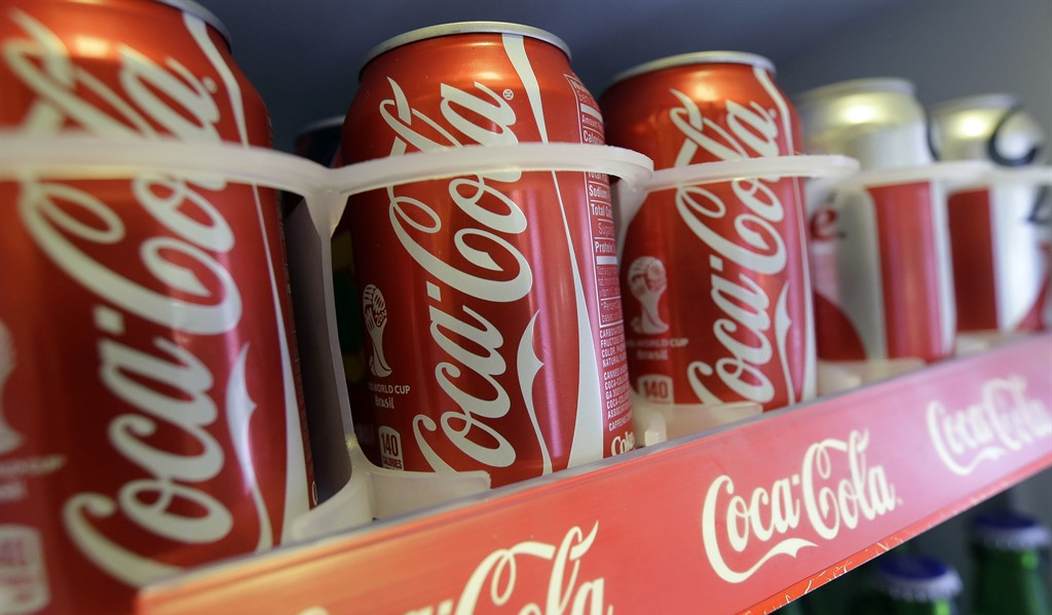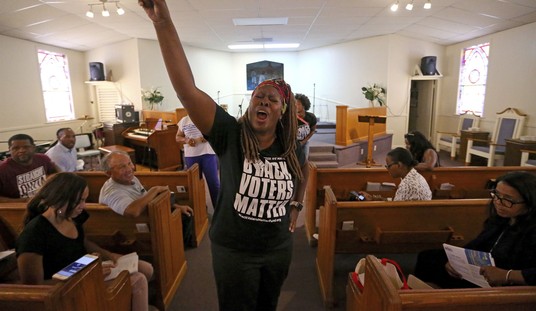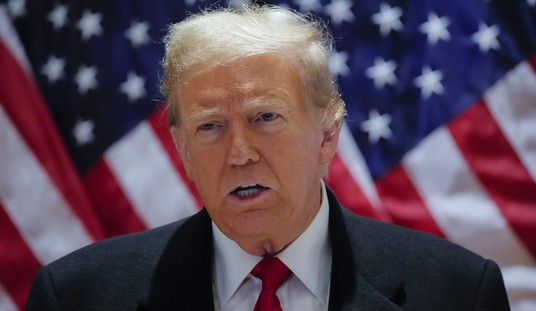Following the guilty verdict in Derek Chauvin’s trial, journalist Michael Tracey noted an odd trend among our elected leaders, corporations, and other cultural institutions. Keep in mind, Chauvin was not charged with nor convicted of any racial motivation in the murder of George Floyd. Even Minnesota Attorney General Keith Ellison said there was no evidence that the crimes were race-related in an interview with 60 minutes:
“If we’d had a witness that told us that Derek Chauvin made a racial reference, we might have charged him with a hate crime. But I would have needed a witness to say that on the stand. We didn’t have it. So we didn’t do it,” he said.
As Tracey notes, you would never know that:
You probably have noticed that corporations, academic institutions, elected officials, and virtually everyone else with a public-facing profile is extraordinarily passionate about “the work” of rectifying racial injustice in the United States.
Now, this reference to “the work” is not new. It is revolutionary-speak used by everyone from Louis Farrakhan to Fidel Castro. What specific activities should take place to address a particular problem are never specified deliberately. This vagueness is a feature of the radical left, as explained by CrimethInc, which describes itself as “an international network of aspiring revolutionaries extending from Kansas to Kuala Lumpur”:
A strong enough movement could strike blows against industrial pollution, state surveillance, and institutionalized white supremacy, but only if it didn’t limit itself to mere petitioning. Demand-based politics limits the entire scope of change to reforms that can be made within the logic of the existing order, sidelining us and deferring real change forever beyond the horizon.
There’s no use in asking the authorities for things they can’t grant and wouldn’t grant if they could. Nor should we give them an excuse to acquire even more power than they already have, on the pretext that they need it to be able to fulfill our demands.
That this revolutionary comment about “more work to do” is becoming a common talking point among all of our power centers should terrify you. A stable society requires negotiation and agreement on what is in the interest of the public good. This language from large corporations, political leaders, and other institutions indicates there is no negotiation required so long as it is part of “the work.”
Being vague is a tool to accumulate power. In Portland, antifa holds more power than Mayor Ted Wheeler. The group determines where people can drive and what businesses continue to exist using violence and arson. It is so asymmetrical now that Wheeler is begging the cowed and demoralized populace to stand up. He is three years too late, having made the mistake of trying to negotiate with terrorists. The problem is, they never gave him any demands, other than ceding ground.
Likewise, the federal government is using “the work” to accumulate power. Despite the lack of racial findings in the George Floyd or Breonna Taylor cases, Attorney General Merrick Garland has announced civil rights investigations into the Minneapolis and Louisville police departments. No doubt they will all be under a consent agreement and monitored by the DOJ at the conclusion. The Biden administration uses vague language to shove trillions of dollars in spending through reconciliation in the name of “equity,” even though their policies do not have a mandate.
And do not think global corporations are going to be left behind. Recent letters from the CEO of Bridgestone and the chief people officer of Anheuser-Busch show how vague problem statements with no resolution get telegraphed to employees. Paolo Ferrari, CEO of Bridgestone, told employees the following after the Chauvin verdict, after recognizing its importance to “a long overdue and painful conversation about racism and equality,” which were a feature of neither the case nor the verdict:
“We can only thrive at Bridgestone if we build a workplace where diversity is celebrated and every voice is heard, Real change does not come in one day, with one action, or a single verdict, but with consistency and intention. This is why we must continue to challenge ourselves both individually and as a Bridgestone community, to embrace all perspectives, individuals, and teams so that we are creating a culture where everyone is able to bring their authentic selves to work. We expect accountability at all levels of our organization and are committed to building alliances for awareness and change.”
The letter from Anheuser-Busch chief people officer Lindsay King, used similar language, introducing a new 15-course training program based on critical race and gender theory to employees in addition to the one mentioned here (more on that to come):
“We are committed to maintaining an inclusive work environment, one where every individual feels respected and empowered to bring their authentic selves to work every day. Last year we reaffirmed our commitment to an inclusive workplace through the launch of UNITE U.S., our platform to champion the causes that bring our people together while celebrating the diversity of our teams.”
These companies make tires and beer. You would think their focus would be on making tires that don’t blow up and perform well in dangerous conditions, and great-tasting, appropriately packaged beverages. So why are they jumping into current events and woke politics internally? The answer is not as a defense against the left-wing mob boycotting them. It is more significant than that.
You may have missed a recent statement from the acting chairman of the Securities and Exchange Commission, Allison Herren Lee:
Investors are demanding more and better information on climate and ESG, and that demand is not being met by the current voluntary framework. Not all companies do or will disclose without a mandatory framework, raising the cost, or resulting in the misallocation, of capital. Investors also aren’t getting the benefits of comparability that would come with standardization. And there are real questions about reliability and level of assurance for the disclosures that do exist. Meanwhile issuers are assailed from all sides by competing and potentially conflicting demands for information. That’s why we have begun to take critical steps toward a comprehensive ESG disclosure framework aimed at producing the consistent, comparable, and reliable data that investors need.
So, what does climate risk have to do with diversity, equity, and inclusion, you may ask. The secret is in the acronym ESG, which stands for environmental, social, and corporate governance. The concept of ESGs was born in the Sustainable Development Goals in U.N. Agenda 2030. Global business leaders in finance operationalized it at the World Economic Forum. It will become a part of the regulatory environment for public companies based in the United States if we take Lee at her word.
As Benjamin Zycher noted in National Review, this would constitute an unprecedented top-down approach to something like climate that is hard to define, let alone measure. However, when Larry Fink, the CEO of Blackrock, the largest financial investment company globally, is demanding standard measures and 60 global companies agreed in January of 2021 to a common set of ESG standards called “Stakeholder Capitalism Metrics,” it is more than unprecedented.
It is the “S,” and “G” in ESG that corporate wokeism is addressing. Social and governance scores include metrics on workforce diversity, pay equity, social consciousness, community involvement, and board composition. Corporations are trying to prepare employees for the changes these requirements will create in the workplace. How wages are determined, who gets promoted according to what criteria, and other terms and conditions of employment, will be affected.
In the globally agreed-upon metrics, these are divided among four buckets: Principles, Planet, People, Prosperity. The reporting burden alone will crush small to medium-sized public companies. It will open global markets to companies that can afford to comply and will be a windfall to the accounting and consulting firms, like KPMG, that helped develop them.
All investment and financing will eventually hinge on these criteria. Blackrock is already using them to make investment decisions, and two former employees of the firm hold leadership positions in the Biden administration at Treasury and the National Economic Council. Global banks like Bank of America are already prioritizing green investment, and, as Zycher notes, this will not benefit anyone but the largest corporations that can afford to comply:
And the future evolution of climate policies, whether in the U.S. or at an international level, is unknowable. The evaluation and disclosure of complex climate “risks” would be costly, a reality that will induce some firms that otherwise would opt to acquire capital in public markets not to do so, substituting such alternatives as venture capital. The aggregate allocation of capital would be made less productive, not a salutary outcome for the investors that are the supposed beneficiaries of climate “risk” disclosures.
Eventually, these requirements will apply to personal finance. Loans for appropriately green housing and vehicles will be available—but not for the used car a first-time buyer can afford or the natural gas-heated home a young couple wishes to buy. The rich, such as Larry Fink, will become more prosperous and more powerful. More of the working and middle class will become poorer, as has already happened during the pandemic.
If you think this can’t escalate, think again. Researchers have already correlated spending habits with personality, and it is only one step to ideology, political affiliation, or some form of social credit. And if this continues, we will eventually be nothing but consumers in the dystopian vision of the World Economic Forum, where citizens own nothing and are happy about it.
WATCH: The video the World Economic Forum deleted:









Join the conversation as a VIP Member